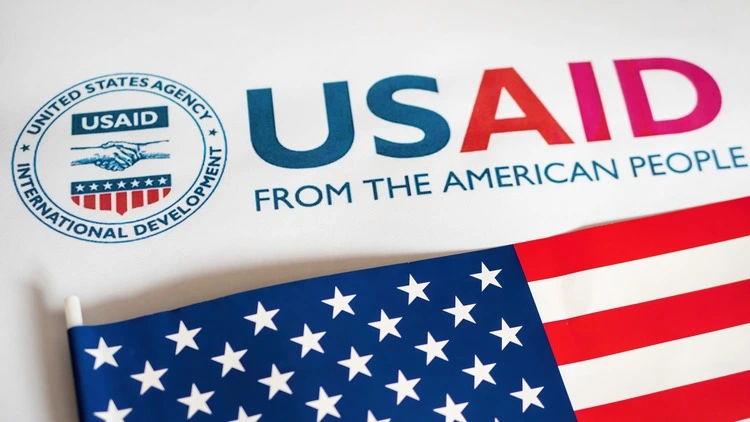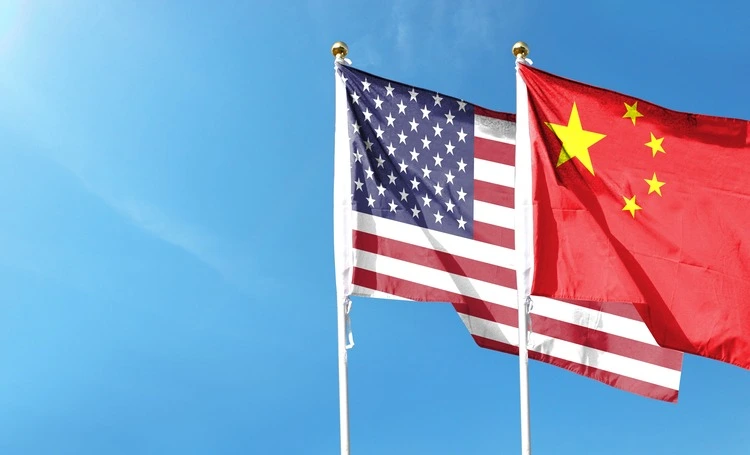
Trump’s executive order to halt much of the US’s foreign aid is likely to have ripple effects across the world, as Doug Specht explains
By Dr Doug Specht
In a move sending shockwaves through the international development community, President Donald Trump’s recent executive order to ‘reevaluate and realign US foreign aid’ has paused billions of dollars in global assistance programmes. This dramatic shift in policy, implemented in the early days of Trump’s new administration, has far-reaching implications for America’s role on the world stage.
This sudden halt in funding has left numerous non-governmental organisations, international bodies, and contractors in limbo, unsure of their future operations. In some parts of the world, there is despair, but in other areas, this executive order may be a sign of the US relinquishing control.
What does the executive order entail?
President Donald Trump’s executive order, ‘Reevaluating and Realigning United States Foreign Aid,’ was issued on 20 January 2025, and mandates a 90-day pause
on nearly all US foreign development assistance worldwide, with notable exceptions for major aid recipients and military allies such as Israel and Egypt.
Enjoying this article? Check out our related reads:
The order aligns closely with Trump’s ‘America First’ policy framework, emphasising that every dollar spent on foreign aid must enhance America’s safety, strength, and prosperity. This approach reflects a shift away from what the administration views as inefficient or ideologically misaligned aid programmes, towards what is being billed as a more focused use of resources that directly benefits American interests.
The order’s preamble explicitly states that the current foreign aid industry and bureaucracy are often ‘antithetical to American values’. Under the new directives, the criteria for aid allocation are likely to prioritise programs that demonstrate clear economic benefits to the United States and support nations willing to shoulder collective defence efforts. This shift may result in reduction of funding for traditional development and humanitarian programs.

In the fiscal year 2023, the US disbursed $72bn of assistance worldwide on everything from women’s health in conflict zones to access to clean water, HIV/AIDS treatments and energy security. USAID provided 42 per cent of all humanitarian aid tracked by the United Nations in 2024. Critical global health programs like PEPFAR (President’s Emergency Plan for AIDS Relief) have already been disrupted, potentially jeopardising lives in countries dependent on US health assistance.
Not only is this realignment of aid priorities going to have a massive impact on the global humanitarian sector, but it could also lead to a significant reshaping of US
soft power influence and potentially diminish American presence in some regions.
Implications for US intervention
While the executive order has clear negative consequences for programmes such as PEPFAR, which are widely accepted to have been beneficial and saved many lives, there are those who see this change as a positive shift in US intervention strategies, moving away from traditional regime change operations through ‘foreign development assistance’.
The US has long used its foreign aid programme to exercise soft power and to push for other nations to align with US views of the world, especially in Latin America and areas which ceded from the Soviet Union.
In 2014, USAID faced accusations of secretly creating a ‘Cuban Twitter’ called ZunZuneo to incite unrest and undermine the Cuban government. Fast forward to 2023, Mexico’s president urged Joe Biden to halt USAID’s funding of groups hostile to his government, echoing previous criticisms of US interventionism in the country.
Similarly, in Nicaragua, Washington has invested tens of millions of dollars into right-wing media outlets and opposition groups since the re-election of the FSLN in 2006. These foreign-funded entities often spread disinformation, incite violence against the government and influence Western media reporting on Nicaragua. These opposition organisations have now lost their funding and will be less able to operate against the government.
In Georgia, US interventionism has significantly influenced demonstrations over the past two years. Parliamentary leader Mamuka Mdinaradze recently suggested that the highly controversial law on foreign funding transparency might no longer be necessary following Trump’s executive order, as the questionable funding is now being withdrawn and will reveal the extent of US influence.

Before the funding pause, USAID was investing in 39 programmes across the country, totalling $373 million, with an annual budget exceeding $70 million. These efforts primarily focused on promoting economic reforms aligned with US interests and attempting to draw Georgia into conflict with Russia.
Similarly, around 90 per cent of Ukraine’s media relies on American grants, with many outlets emerging after the Maidan Coup to propagate war against Russia. In the Balkans, the withdrawal of US funding will lead to significant changes in how countries operate.
As early as 1998, The New York Times warned that US domination of Bosnia raised concerns about the state’s functionality without continued external aid and supervision. With 25,600 Western-funded NGOs active in Sarajevo, this sudden withdrawal will reduce US domination but will also undermine civil society, which has been heavily funded as a tool of US interventionism. Similar contradictions face Albania, Kosovo, North Macedonia, Montenegro and Serbia, where collectively, the US has poured $1.7 billion in funding to ensure state institutions align with US policy. This realignment of priorities will reshape US soft power influence significantly, and the reduction in funding could lead to a diminished American presence in certain regions.
This will be seen as liberating by some, especially those against whom USAID has been working, but the fast withdrawal could also create power vacuums that could be filled by other global actors, potentially altering the geopolitical landscape in affected areas.
Long-term geopolitical consequences
The global reaction to President Trump’s executive order on foreign aid has been swift and largely critical. International aid organisations and UN agencies are scrambling to navigate this funding crisis, with some taking immediate steps to curtail expenses.
UN High Commissioner for Refugees, Filippo Grandi, issued an urgent directive to staff to restrict spending, highlighting the uncertainty surrounding funding for refugee operations. Allies and international organisations have expressed deep concern over the potential consequences of this policy shift, and UN Secretary-General Antonio Guterres has urged the US to consider additional exemptions to ensure the uninterrupted provision of essential development and humanitarian activities for the most vulnerable populations worldwide.

Domestic critics of Trump’s executive order have lambasted Washington’s loss of expansive ‘soft power’ influence in the Global South. The potential rise of alternative aid providers, particularly China and Russia, is a significant concern to many in Washington. China has been actively expanding its influence through initiatives such as the Belt and Road project, and this reduction in US aid could provide an opportunity for China to further strengthen its position in developing nations.
In Africa, where the competition for influence between the US and China has been particularly intense, the suspension of US aid could tilt the balance in China’s favour. Prior to this policy shift, many African nations already viewed China’s economic influence positively compared to that of the US. This, in turn, is likely to have global trade relationships and development partnerships are likely to undergo significant shifts.
The US may find it challenging to maintain its role as a champion of global trade while simultaneously implementing restrictive policies. This could lead to a reconfiguration of trade alliances and potentially push developing nations to seek alternative partners.
The impact on US soft power and economic diplomacy then is likely to be substantial. Polls have shown that US soft power had already declined during Trump’s previous term, with the ‘America First’ policy implying that other nations’ interests come second. This latest move may further erode America’s attractiveness and influence on the global stage, potentially hampering its ability to shape international affairs through non-coercive means.

Such retreat, though, may be of enormous benefit to countries targeted by US interventionist policies. US intervention has been ruinous for much of Latin America and the Middle East, as well as producing a front line in Eastern Europe. While suggesting the executive order is about putting America first, this policy move may mean the US will find it increasingly difficult to maintain its global leadership position. This could lead to a more multipolar world order, with implications for international cooperation, conflict resolution, and global governance structures.
Ultimately, we must be cautious; while the executive order has withdrawn funding from many interventionist projects, potentially spelling new autonomy for many countries, it also explicitly states that it seeks a more focused use of resources that directly benefit American interests. This may well spell the end of some programmes, but the intensification of other interventions.
This is unlikely to mark the end for US foreign development assistance being used to bring about coups, unrest, and regime change. Instead, it will likely change the landscape of where and when those interventions take place. Soft power may be replaced with more fiscally appealing hard power.
As the 90-day review period progresses, the international community will be watching closely. The outcome of this review and the subsequent implementation of new aid policies will likely define America’s approach to international development and diplomacy for years to come.
It may also serve as a catalyst for a broader global conversation about the nature of foreign aid, the responsibilities of developed nations, and the future of international cooperation in an increasingly multipolar world.



